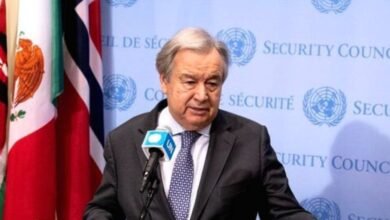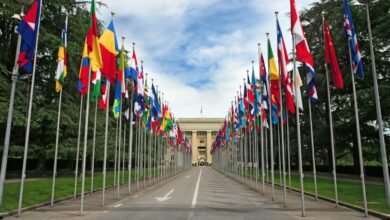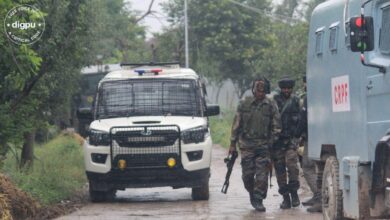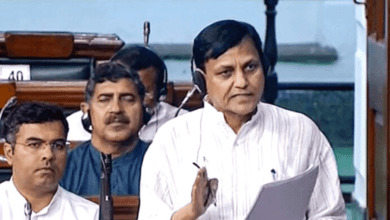India objects to UN Human Rights concern over ‘blatant’ use of UAPA, arrest of activist
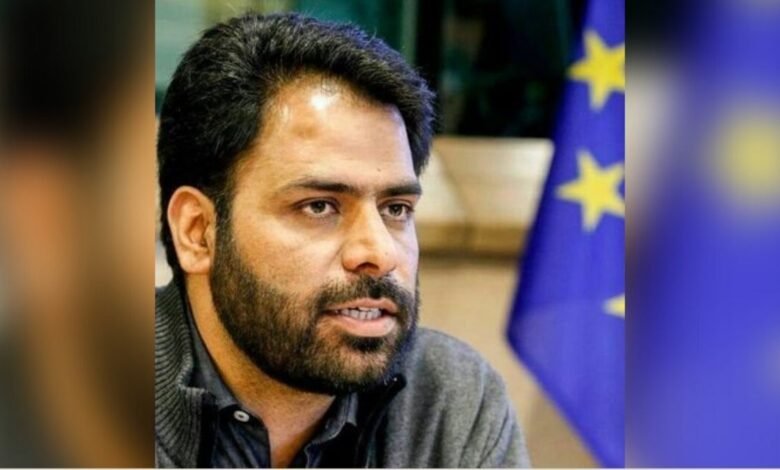
The Union Ministry of External Affairs spokesperson Arindam Bagchi defended the UAPA and said that activist Khurram Parvez was arrested under legal provisions
India has slammed the UN allegations on Kashmir killings and arrests as “baseless and unfounded” against the country’s security forces.
The office of the UN high commissioner for human rights has expressed deep concern over the arrest of Kashmiri human rights defender Khurram Parvez under Indian counter-terrorism legislation – the Unlawful Activities Prevention Act (UAPA).
The Union Ministry of External Affairs spokesperson Arindam Bagchi has said that the terror of militants poses a challenge to India’s security and sovereignty. He also added that allegations made against India’s security forces in the valley are “baseless” and it is for this reason India has turned its focus to eliminate the terror from the valley.
Spokesperson Arindam Bagchi said that the Unlawful Activities (Prevention) Act, 1967, was passed by the Parliament to protect the sovereignty of the country and to ensure security to its citizens. The arrests were made within the provisions of the law. “We urge the OHCHR to develop a better understanding of the negative impact of terrorism on human rights,” it said.
The UN concern on Kashmir
Khurram Parvez is a coordinator of Jammu and Kashmir Coalition of Civil Society, a local human rights group. He was arrested on November 22 by NIA, the country’s top anti-terror investigation agency, and booked under UAPA over terror-funding and other charges.
The National Investigation Agency arrested him after carrying out raids at his Srinagar office and his house.
Previously in 2016, the 44-year-old human rights activist was detained under another controversial law, the Public Safety Act, for two and a half months and was restricted to travel to the Human Rights Council in Geneva. Parvez received the 2006 Reebok Human Rights Award and is currently moved to a jail in New Delhi.
JKCCS or Jammu and Kashmir Coalition of Civil Society, led by Parvez, has published several reports on the human rights violations in the decades of the Kashmir conflict and the military impunity of the Indian forces. They have stationed more than half a million troops in the Himalayan region, making it one of the most militarized zones in the world.
Parvez was released after the Jammu and Kashmir High Court declared his detention illegal, according to the statement released by the UN Human Rights Commission.
The statement further raised some serious concerns against the UAPA and the free trial rights. “The Act is also increasingly being used to stifle the work of human rights defenders, journalists and other critics in Jammu and Kashmir and other parts of India,” it said.
It added, “In view of this context of previous reprisal for legitimate conduct, we call on the Indian authorities to fully safeguard his right to freedom of expression, association and personal liberty and to take the precautionary steps of releasing him.”
Office of the UN high commissioner for human rights reiterated their request for the UAPA to be amended and brought in line with international human rights law and standards, and urge the authorities, pending the law’s amendment, to refrain from using this or other laws unduly restricting freedom of expression in cases involving civil society, media, and human rights defenders.
The blatant use of UAPA and PSA
Around 2,300 people have been booked under the UAPA by the J&K administration in more than 1,200 cases since 2019, The Indian Express reported. At least 954 people were booked under the Public Safety Act.
Of the detainees and the arrested person under the above-mentioned act, 46% in UAPA and 30% in PSA are still in jails – both inside and outside the territory.
Within the first 30 days of revoking the J&K’s special status in 2019, at least 290 people were booked under PSA, including the former chief minister of Farooq Abdullah, Omar Abdullah and Mehbooba Mufti.
There is an annual decline in arrests under PSA since 2019. But the decline is compensated by the rise of arrests made under the UAPA, a much stronger act.


